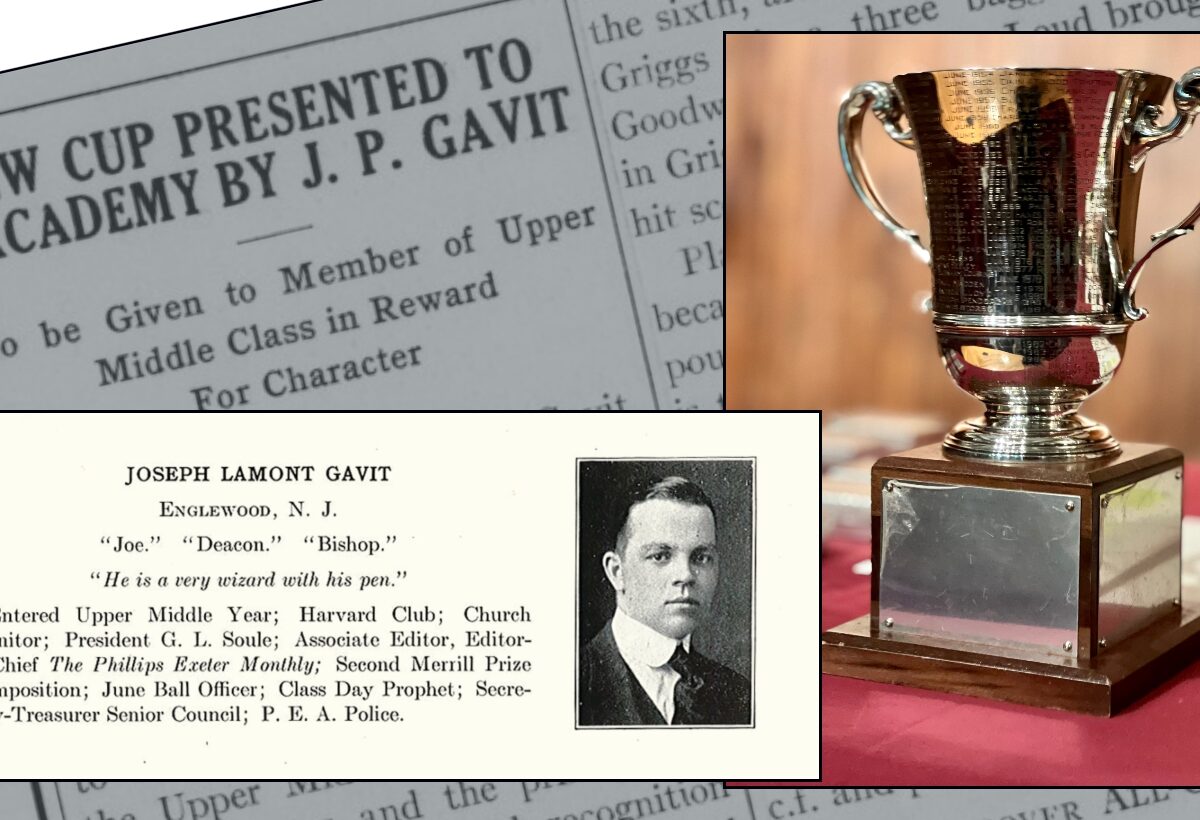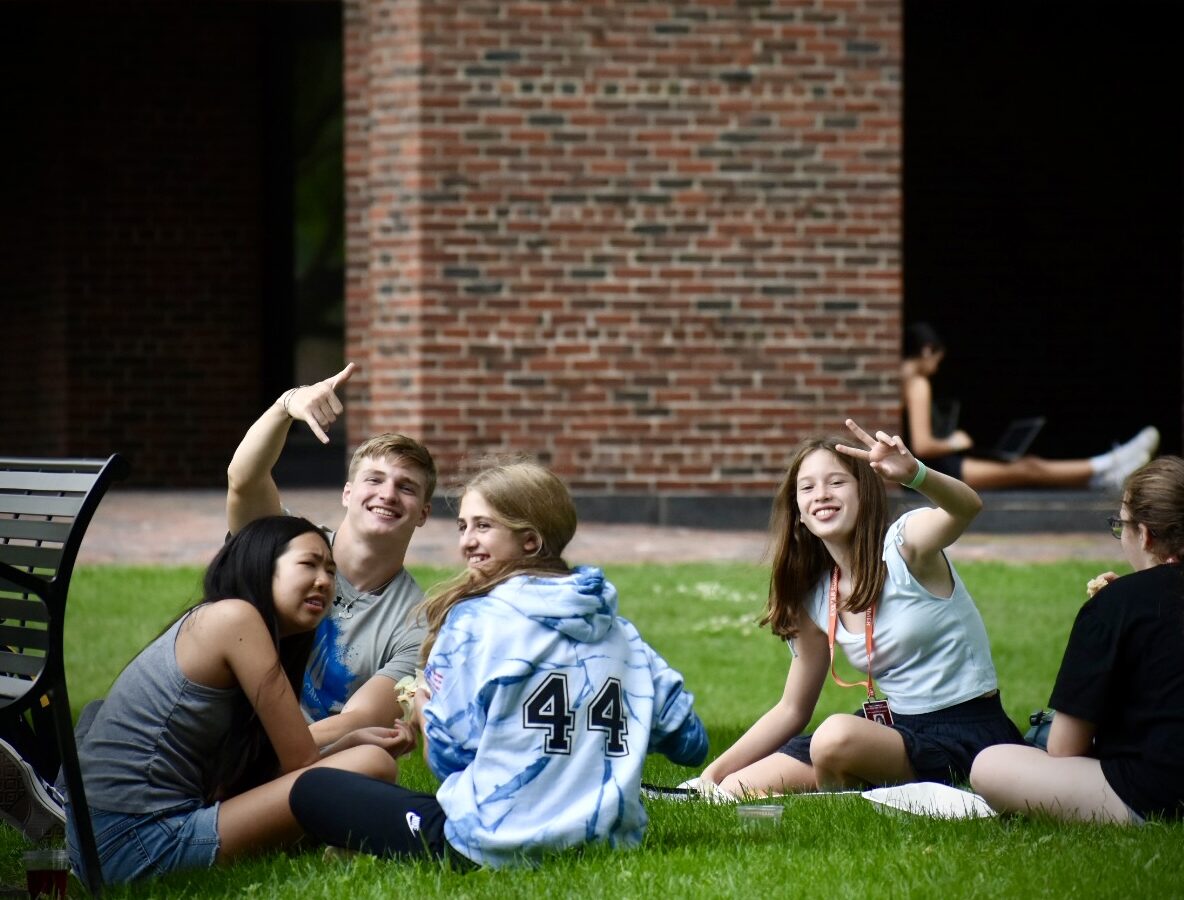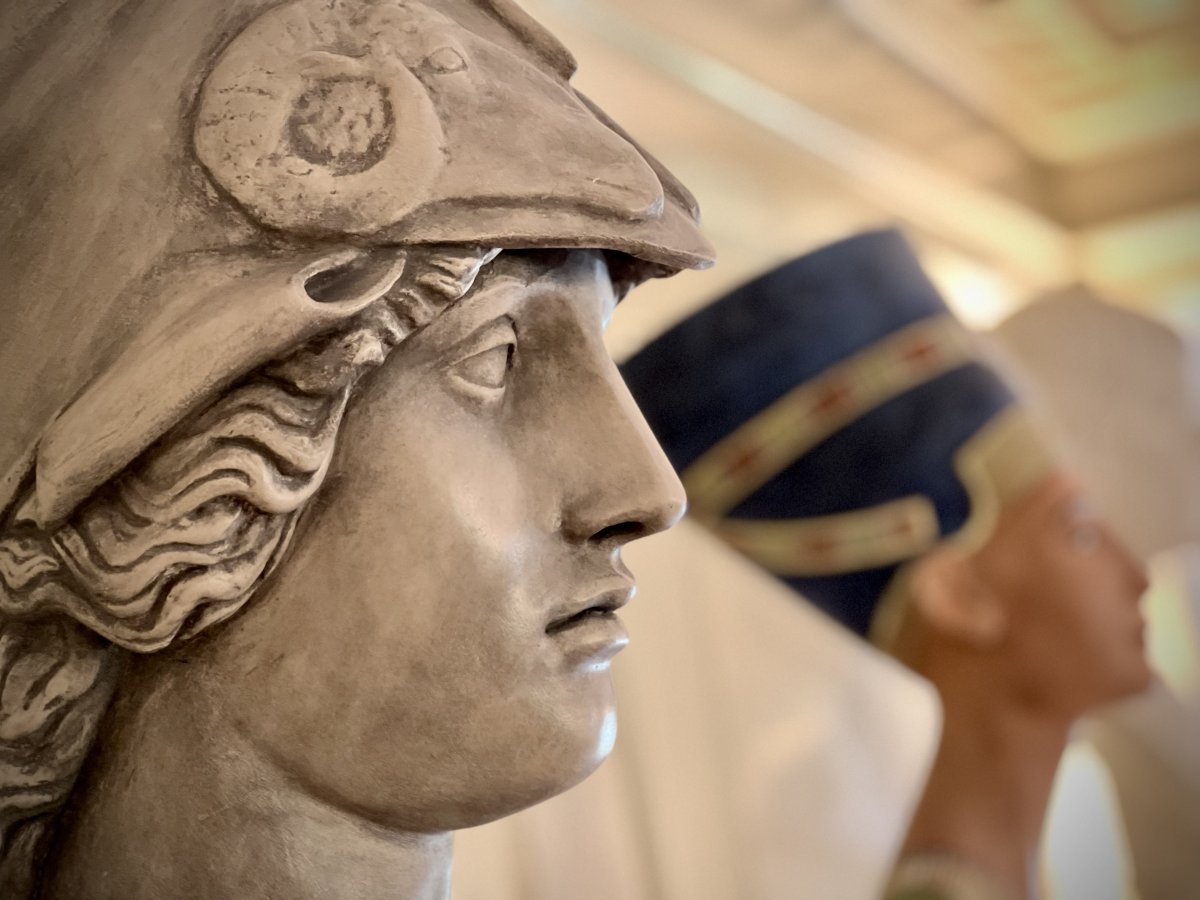Like similar projects on campus, this one grew out of a series of conversations launched in 2020 around how Exeter could become a more anti-racist school. Led by teaching interns Alexandria Frank and Lina Wang of the Classics Department, more than 20 students joined the CVP each term. Many were classics students; others weren’t, and some of them had never even been in the Latin Study before.
“We started with a lot of brainstorming and figuring out what sorts of changes they’d like to see,” Frank says. “We were thinking through the overall aesthetic of the space, in combination with how it can become more inclusive and represent Exeter as it is today.”
The reimagination started with the walls of the room, which were previously adorned with four large portraits of former classics instructors at the Academy. “Students felt that when they came into the space, they were faced with four old white men,” Wang says. “That kind of sends a message about who this space is for, and who represents classics.”

A portrait of John Kirtland, founder of the Kirtland Society, will remain. The three others will be removed and replaced with a variety of different images, including — in the center of one wall — a painting of the severed head of the gorgon Medusa by Rowan Flanagan ’24. Flanagan’s piece, titled “Perseus Triumphant,” is the first in what will be a rotating series of exhibits, featuring posters from an array of visiting speakers and artwork by students, including those who (like Flanagan) aren’t studying classics. Planned future additions include prints of works by the artist Romare Bearden, whose series A Black Odyssey featured scenes based on Homer’s epic poem blended with images from African mythology and religion.
On a high shelf lining one wall, newly unboxed busts of the goddess Athena, wearing her military helmet, and the Egyptian queen Nefertiti have replaced a formerly all-male lineup dominated by Augustus and Cicero. Nola Weeder ’24 appreciates seeing a greater number of women depicted in the artwork that now decorates the Latin Study. “It was really cool to see [the changes] implemented, and how it wasn’t just men covering the entire room,” she says. “It’s a lot more representative.”

Frank and Wang credited Classical Languages Instructor Sally Morris with helping to commission the bust of Nefertiti, which was modeled on a 14th-century sculpture recovered in 1912 from the ruins of the royal city of Amarna and is painted in vibrant colors, in the style of the original.
“We’ve been having a lot of conversations about how these stoic white marble busts aren’t how they were in antiquity,” Frank says. In fact, evidence suggests most ancient sculptors, including Greeks and Romans, practiced polychromy (all-over color). But the paint wore off over time, leading to a persistent myth that these artists deliberately left their sculptures bare.
“You see these big white busts with no paint and no detail on them, and they seem almost devoid of any character,” agrees Rishi Gurudevan ’25, another participant in the CVP. “In reality, that’s not what they were meant to be.”
Gurudevan also appreciated the group’s efforts to expand the Latin Study’s vision of antiquity beyond Greece and Rome, and incorporate a more global view into both the art on the walls and the books on the shelves. “We focused on representing Persian, Northern African, Indian and Chinese populations as well, and really challenging the definition that’s been presented to us of this Greco-Roman world,” he says. “Cultures from all over the world have had massive impacts on how we live today.”






